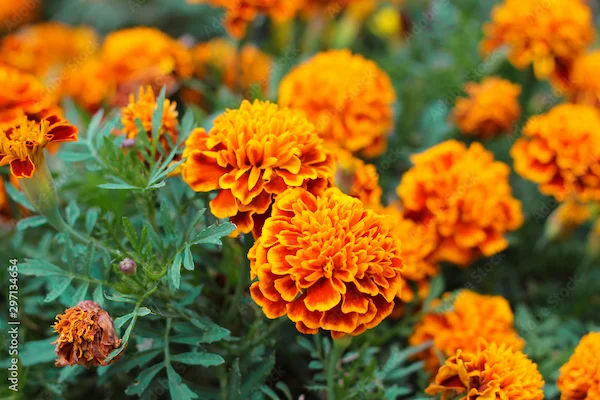Monsoon Diet for Rainy Season Wellness
Discover the ideal monsoon diet for rainy season wellness, including nutritious foods to boost immunity, foods to avoid to prevent infections, practical monsoon health tips for wellness, and a simple monsoon meal plan to stay healthy and energized throughout the season.

Written by Dr. J T Hema Pratima
Reviewed by Dr. Rohinipriyanka Pondugula MBBS
Last updated on 10th Aug, 2025

Introduction
The monsoon season brings relief from the scorching summer heat, but it also comes with its own set of health challenges. The increased humidity and fluctuating temperatures create an ideal environment for infections, digestive issues, and weakened immunity. A well-balanced monsoon diet can help you stay healthy, boost immunity, and prevent common seasonal illnesses.
In this article, we’ll explore:
Why a monsoon-specific diet is important
Foods to eat and avoid during the rainy season
Tips for staying healthy in monsoon
Easy-to-follow dietary recommendations
Let’s dive in!
Why Is a Monsoon Diet Important?
During the monsoon, our digestive system tends to become sluggish due to high humidity and reduced metabolism. Additionally, waterborne diseases, viral infections, and stomach upsets are common. A nutrient-rich, light, and easily digestible diet helps:
Strengthen immunity
Improve digestion
Prevent infections
Keep energy levels stable
By making mindful food choices, you can enjoy the rains while staying fit and healthy.
Best Foods to Eat in Monsoon
The monsoon season calls for extra care in choosing the right foods to stay healthy and avoid seasonal illnesses. Here are some of the best foods to eat during monsoon:
1. Warm & Light Soups
Why? Warm soups (like vegetable, lentil, or chicken soup) help digestion and keep infections at bay.
Try: Ginger-turmeric soup, tomato soup, or clear broth.
2. Seasonal Fruits
Best picks: Apples, pears, pomegranates, and bananas (avoid pre-cut fruits from street vendors).
Why? They are rich in vitamins and antioxidants, boosting immunity.
3. Herbal Teas & Kadha
Best options: Ginger tea, tulsi (holy basil) tea, or turmeric milk.
Why? These have anti-inflammatory and antibacterial properties.
4. Probiotic Foods
Best sources: Yoghurt (curd), buttermilk, and fermented foods like idli/dosa.
Why? They improve gut health and digestion.
5. Dry Roasted Snacks
Healthy choices: Roasted makhana (fox nuts), chana (chickpeas), or nuts.
Why? They provide energy without causing bloating.
6. Garlic & Turmeric
Why? Natural immunity boosters with antiviral and antibacterial properties.
7. Whole Grains & Lentils
Best picks: Brown rice, oats, moong dal, and quinoa.
Why? Easily digestible and rich in fibre.
Health topic carousel:
Doctor's speciality: Nutrition
Text: Consult a Top Nutritionist for the best advice
Foods to Avoid in Monsoon
To prevent infections and digestive issues, avoid or limit:
Street food & fried snacks (risk of contamination)
Raw leafy greens (may contain bacteria due to dampness)
Seafood (higher risk of spoilage)
Excess dairy (can cause mucus buildup)
Carbonated drinks & ice creams (slow digestion)
Cut fruits from outside (risk of contamination)
Monsoon Health Tips for Wellness
Staying healthy during the monsoon season requires a few mindful habits to protect against infections and seasonal illnesses.
1. Stay Hydrated (But Safely!)
Drink boiled or filtered water to avoid waterborne diseases.
Herbal teas, coconut water, and warm lemon water are great options.
2. Eat Fresh & Home-Cooked Meals
Avoid eating out to reduce the risk of infections.
3. Boost Immunity Naturally
Include ginger, honey, turmeric, and tulsi in your diet.
4. Maintain Hygiene
Wash fruits & vegetables thoroughly before eating.
Keep hands clean to prevent infections.
5. Exercise & Stay Active
Indoor workouts or yoga can help maintain energy levels.
6. Avoid Overeating
Eat small, frequent meals to aid digestion.
Simple Monsoon Meal Plan
Eating right during the monsoon can help strengthen your immunity and keep seasonal illnesses at bay. Here’s a simple monsoon meal plan to support your health and digestion:
Breakfast:
Oats with nuts & honey
Herbal tea or turmeric milk
Lunch:
Khichdi (moong dal + rice) with veggies
A bowl of yogurt
Evening Snack:
Roasted makhana or a handful of nuts
Ginger tea
Dinner:
Light vegetable soup with whole wheat roti
Steamed vegetables
When to Consult a Doctor?
If you experience:
Persistent fever, diarrhea, or vomiting
Severe stomach pain
Prolonged weakness or fatigue
Final Thoughts
The monsoon season can be enjoyable if you take care of your diet and hygiene. By eating fresh, warm, and immunity-boosting foods, staying hydrated, and avoiding risky foods, you can stay healthy and energetic.
Health topic carousel:
Doctor's speciality: Nutrition
Text: Consult a Top Nutritionist for the best advice
Consult Top Specialists for Personalised Tips

Dr. Bhukya Pavan Kalyan
General Physician
5 Years • MBBS DNB Paediatrics
Bengaluru
PRESTIGE SHANTHINIKETAN - SOCIETY CLINIC, Bengaluru

Dr. Ramalinga Reddy
General Physician
5 Years • MBBS MD General medicine
Bengaluru
PRESTIGE SHANTHINIKETAN - SOCIETY CLINIC, Bengaluru
Dt. Ila Sharma
Clinical Nutritionist
18 Years • Master in food & Nutrition
Gurugram
VIPUL GREENS - SOCIETY CLINIC, Gurugram
Dr Sumanth R
General Physician
2 Years • MBBS
Bengaluru
PRESTIGE SHANTHINIKETAN - SOCIETY CLINIC, Bengaluru
Dr. Sasikamalam
General Practitioner
1 Years • MBBS
COIMBATORE
Apollo Sugar Clinic Coimbatore, COIMBATORE
Consult Top Nutritionists

Dr. Bhukya Pavan Kalyan
General Physician
5 Years • MBBS DNB Paediatrics
Bengaluru
PRESTIGE SHANTHINIKETAN - SOCIETY CLINIC, Bengaluru

Dr. Ramalinga Reddy
General Physician
5 Years • MBBS MD General medicine
Bengaluru
PRESTIGE SHANTHINIKETAN - SOCIETY CLINIC, Bengaluru
Dt. Ila Sharma
Clinical Nutritionist
18 Years • Master in food & Nutrition
Gurugram
VIPUL GREENS - SOCIETY CLINIC, Gurugram
Dr Sumanth R
General Physician
2 Years • MBBS
Bengaluru
PRESTIGE SHANTHINIKETAN - SOCIETY CLINIC, Bengaluru
Dr. Sasikamalam
General Practitioner
1 Years • MBBS
COIMBATORE
Apollo Sugar Clinic Coimbatore, COIMBATORE




